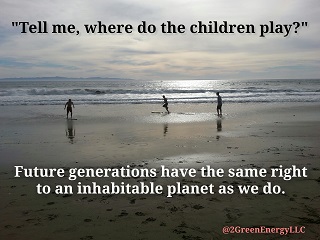The Way of the World: More Solar, Less Coal

At the same time, Scotland has banned the use of coal 100%, and will be cranking up natural gas at the same time that they amp up renewables.
As we all know, the number one environmental priority re: energy is getting coal out of the grid-mix. That it produces about twice as much CO2 than gas is important, but it’s only one part of the story; we also need to take into consideration the oxides of nitrogen and sulfur, the arsenic, the heavy metals (mercury, cadmium, selenium) and a huge range of radioactive isotopes.
There is no big mystery associated with any of this; it’s all happening for the reasons I outlined in my latest book, Bullish on Renewable Energy, i.e., basic market economics driven by the plummeting cost of virtually all types of clean energy.
The fact that coal is on its way out is terrific news for all living creatures. Yes, I know there are nay-sayers, but it appears only a matter of time before they, albeit reluctantly, become yea-sayers.

Using renewable systems certainly can reduce the use of fossil fuels. No one really doubts that. The problem is that there is a limit to how far that can be carried. The goal has to be to reduce fossil usage to near zero, not just to reduce its usage by 50% or 70% or whatever.
At this time, wind and solar systems depend on hydro or fossil fuel systems. Without having hydro or fossil fuel systems connected to the grid, power would be very unreliable. NO country, regardless of how hard it has tried, has succeeded in getting almost all of its power from renewable systems.
If there were even one country that had ever succeeded in getting adequate and reliable power from wind and solar systems, then presumably many other countries could do the same thing.